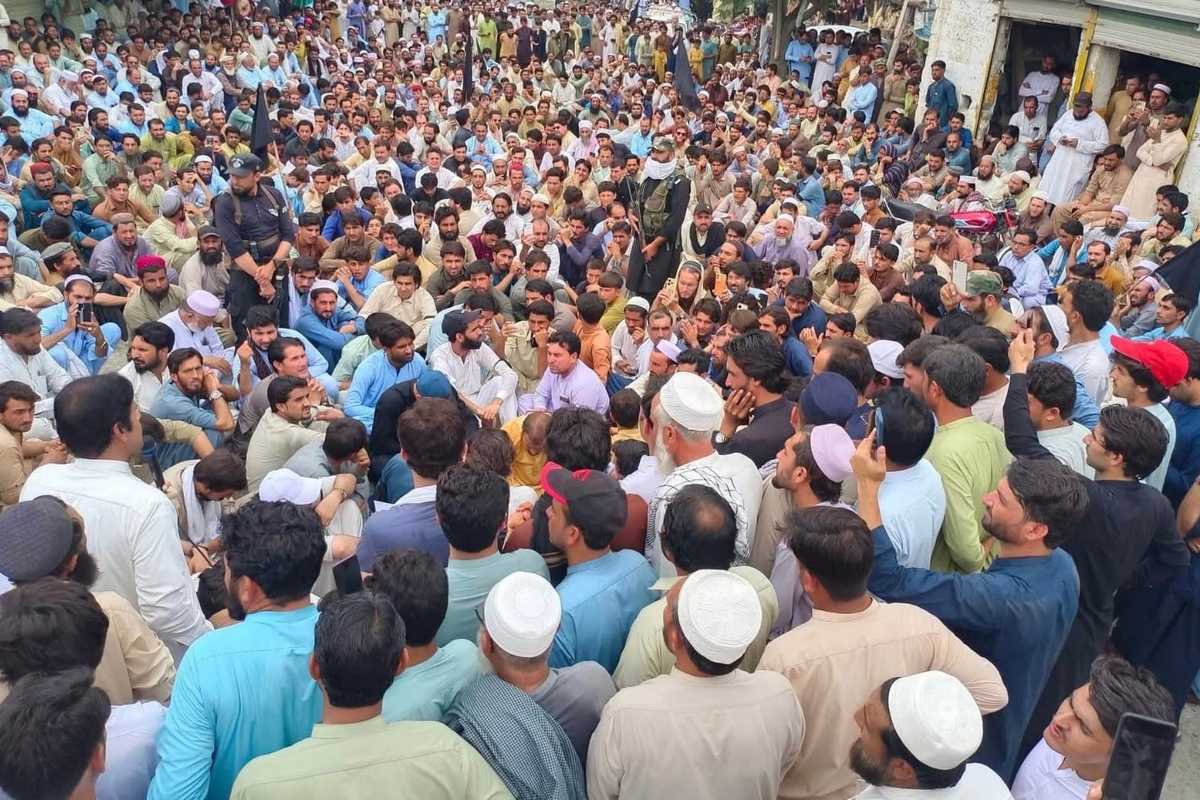Pakistan rules out new military operation in KP, says anti-terror drive will continue
Minister Talal Chaudhry accuses PTI-led KP govt of not utilizing its PKR 150 billion counter-terrorism funds and of having a tacit deal with militants

Javed Hussain
Correspondent
I have almost 20 years of experience in print, radio, and TV media. I started my career with "Daily Jang" after which I got the opportunity to work in FM 103, Radio Pakistan, News One, Ab Tak News, Dawn News TV, Dunya News, 92 News and regional channels Rohi TV, Apna Channel and Sach TV where I worked and gained experience in different areas of all three mediums. My journey from reporting to news anchor in these organisations was excellent. Now, I am working as a correspondent with Nukta in Islamabad, where I get the opportunity of in-depth journalism and storytelling while I am now covering parliamentary affairs, politics, and technology.

A senior Pakistani government minister has confirmed that no new military operation is being launched in the northwestern province of Khyber Pakhtunkhwa (KP), but intelligence-based actions against terrorist elements will continue under the National Action Plan (NAP).
The clarification comes after Pakistan’s military temporarily paused a counter-terrorism operation in Bajaur - a tribal district in KP - just a day after it was launched.
The pause followed widespread protests by local tribal elders and political representatives, who expressed concerns over fresh military actions in the region.
In recent days, several tribal jirgas and council meetings have been held, calling for restraint and voicing demands that security strategies be carried out with broader political consensus and local input.
Importantly, these calls have not come from opposition parties alone but have also involved neutral and pro-government stakeholders in the province.
'Operations to continue under NAP'
Speaking to Nukta, Minister of State for Interior Talal Chaudhry reiterated that no new operation was being initiated. Instead, he emphasized that the ongoing actions are part of pre-existing counter-terrorism efforts under the National Action Plan, which was introduced in 2014 as a unified strategy to combat terrorism and extremism.
“These operations fall under two categories: kinetic and non-kinetic,” said Chaudhry.
“They are guided by predetermined standard operating procedures and are targeted in nature. Intelligence-based operations take place regularly and will continue without interruption.”
He added that the 20 points of the National Action Plan are being implemented daily, with hundreds of operations underway across the country, including in Khyber Pakhtunkhwa.
Political disagreement emerges
Despite the government’s clarification, the issue has sparked political backlash, particularly from the provincial ruling party, the Pakistan Tehreek-e-Insaf (PTI), which has opposed the prospect of any new military campaign in KP.
During a National Assembly session on Thursday, PTI leader and former speaker Asad Qaiser strongly criticized the federal government, saying, “We will not allow any kind of operation in our province. This is a Form 47 government. The people sitting here are not elected representatives. The assembly has become a rubber stamp.”
Qaiser also accused Minister Chaudhry of making a false statement and questioned the federal government’s financial commitments to the province. “Tell us about the NFC share - who has provided it? They are not giving net hydel profits or the tobacco cess either. We want to make it clear: no operation will be allowed in our province,” he added.
PTI playing politics, claims minister
In response, Minister Chaudhry dismissed PTI’s opposition as a political slogan, alleging that the party - and the KP provincial government - has compromised with terrorist groups, including the Tehreek-e-Taliban Pakistan (TTP).
He claimed that the PTI-led government in KP has failed to use any portion of its PKR 150 billion share of counter-terrorism funds, and accused the party of maintaining a silent understanding with militant elements. “Their opposition to the operation is not about principles - it is political,” he said.
Law minister calls for national unity
Adding to the discussion, Federal Law Minister Azam Nazir Tarar sought to ease tensions by reaffirming that KP has received its share from the federal divisible pool.
He acknowledged that past dealings with terrorist groups are a matter of historical record but emphasized the need for unity across party lines.
“We should all stand together for a terrorism-free Pakistan,” he said. “Whatever sacrifices are needed, we must be willing to make them.”
What is NAP?
Pakistan’s NAP was introduced in 2014 following the Peshawar school massacre and serves as the country’s overarching counter-terrorism strategy.
The plan includes 20 points, ranging from judicial reforms and regulation of religious seminaries to intelligence sharing and military operations.
As part of NAP, security forces have conducted multiple operations against militant groups such as Fitna-al-Khawarij (FAK) and Tehreek-i-Taliban Pakistan (TTP).
Between December 7 and 18, 2024, more than 14 operations were conducted across various regions, including Mullazai, Tank, and North Waziristan, leading to the neutralization of 76 terrorists and a significant disruption of militant networks.
Officials say these operations are intelligence-led and targeted at dismantling operational cells, sleeper networks, and facilitators. Security and intelligence agencies continue to emphasize that such actions are essential for maintaining long-term stability.







Comments
See what people are discussing